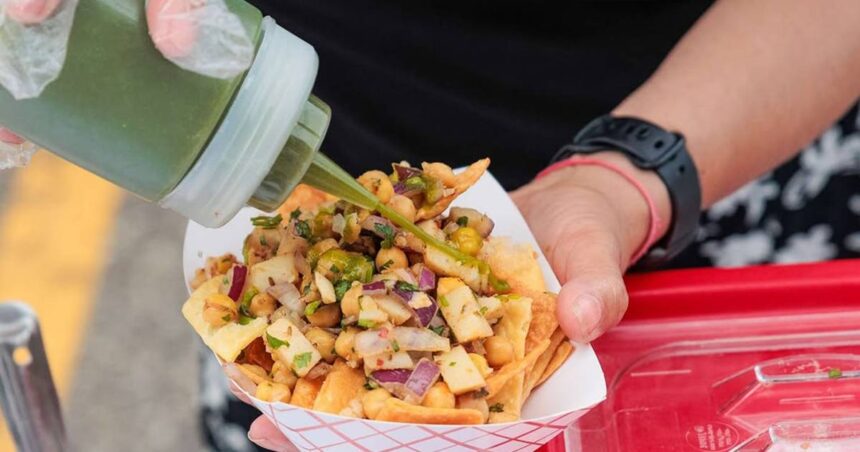The aroma of sizzling street food, the vibrant collage of cultural performances, and the hum of thousands of food enthusiasts converging in one place – Toronto’s culinary landscape is about to experience its most ambitious celebration yet. The International Food Festival Toronto 2025, slated for next month, promises to transform the city into a global gastronomic hub where borders dissolve through the universal language of food.
Set against the backdrop of Toronto’s diverse cultural tapestry, this inaugural festival isn’t merely another food event. It represents something more profound: a celebration of the city’s multicultural identity through its most accessible medium – cuisine. With over 200 vendors representing cuisines from 45 countries, the festival ambitiously aims to showcase the authentic flavours that have shaped Toronto’s reputation as one of North America’s most exciting food destinations.
“Food festivals have become somewhat predictable in recent years,” notes festival organizer Maria Chen. “We wanted to create something that goes beyond the typical food stall setup. Each pavilion will tell a story – about migration, family traditions, and how recipes transform when cultures meet.”
This narrative approach distinguishes the event from typical food festivals. Visitors won’t simply sample dishes; they’ll experience immersive cultural journeys. The Japan pavilion, for instance, will guide guests through regional specialties while explaining the historical significance behind each preparation method. Meanwhile, the West African section plans to demonstrate how diaspora communities have preserved culinary traditions while adapting to Canadian ingredients.
The timing couldn’t be more appropriate. As CO24 Culture has previously explored, post-pandemic food culture has evolved dramatically, with consumers increasingly seeking authentic experiences over mere consumption. Festival attendance nationwide has surged 35% since 2023, reflecting a collective hunger for cultural connection that transcends the digital realm.
What makes Toronto particularly suited for such an ambitious undertaking is its unique position as home to communities from virtually every corner of the globe. Unlike similar festivals in other metropolitan centers, Toronto’s event draws from established neighborhood expertise – from the generations-old Italian trattorias of Little Italy to the family-run Ethiopian restaurants of Danforth East.
Beyond the culinary offerings, the festival incorporates an educational component that feels particularly relevant in today’s climate. As CO24 Trends has documented, food sovereignty and sustainability have become central concerns for younger consumers. Responding to this shift, the festival includes workshops on urban farming, reducing food waste, and understanding the environmental impact of global food systems.
“We’re witnessing a fascinating convergence of pleasure and principle,” explains food anthropologist Dr. Anita Singh. “Today’s food enthusiasts want delicious experiences, but they also demand transparency about origins and impact. This festival addresses both impulses.”
Critics might question whether such a large-scale event can maintain authenticity while catering to mass appeal. It’s a legitimate concern that has plagued similar festivals elsewhere, where “international” food sometimes becomes a watered-down version palatable to the broadest audience. Festival organizers insist they’ve addressed this challenge by giving participating chefs creative control rather than prescribing menu items.
The festival also arrives at a moment when Toronto’s food scene faces existential pressures. Rising rents have forced the closure of beloved establishments, while labor shortages continue to challenge the industry. Against this backdrop, the event offers a platform for struggling restaurants to reach new audiences and for aspiring chefs to showcase their talents without the overhead of a permanent location.
As someone who has chronicled Toronto’s cultural evolutions for years, I find myself both optimistic and cautiously skeptical about this ambitious undertaking. Food festivals at their best can democratize gourmet experiences and create spaces where cultural exchange happens organically. At their worst, they can commodify tradition and reduce rich culinary histories to Instagram moments.
The International Food Festival Toronto 2025 sits at this intersection of possibility and pitfall. Its success will depend not on attendance numbers or social media impressions, but on whether it fosters genuine connections between communities and creates space for authentic representation. In a city defined by its diversity yet still grappling with inclusion, perhaps this gathering around the universal table represents something more vital than we initially recognize – a rare moment where celebrating difference becomes the very thing that unites us.
As the festival approaches, one wonders: in a world increasingly divided by cultural and political tensions, could these shared moments of culinary appreciation offer something we desperately need – a reminder that our differences, when savored rather than feared, make life immeasurably richer?
For more perspectives on how cultural celebrations shape our social landscape, visit CO24 Opinions.

























